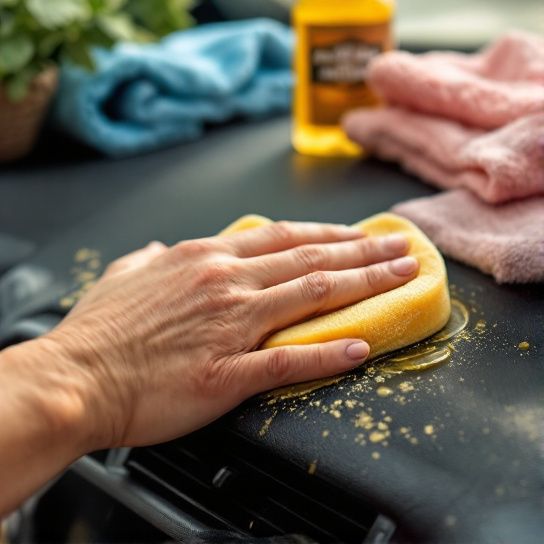Have you ever found yourself staring at the plethora of beauty products on the shelves, wondering what goes into these little bottles of promise? Maybe you’re starting to feel like your makeup bag is more of a chemistry kit than a beauty toolkit. It’s a legit thing to ponder. More and more of us are starting to ask: Is there a better way to care for our skin and appearance? Could making conscious beauty choices be the path to not only looking good but also feeling good about what we choose to apply to our bodies?
The Shift Toward Aware Care and Why It Matters
Let’s keep it simple. Traditional beauty products often contain synthetic chemicals, some of which aren’t exactly skin-friendly. Sometimes, long words like parabens and phthalates might sound fancy, but they can be less than glamorous for our health. Many folks are waking up to this, hence a growing trend towards conscious beauty, focusing on ingredients that are nourishing and non-toxic.
Switching to n be transform products, which align perfectly with this conscious beauty mindset, can be transformative, and in ways, you might not expect. They prioritize skin health, promoting a longer-term approach to beauty and wellness. Imagine your beauty products being as wholesome as the food you eat—that’s the idea.
Understanding Natural Beauty Products
First off, what exactly qualifies as a natural beauty product? It might not be as straightforward as you think. Look for products with ingredients derived from plants, minerals, or naturally occurring compounds. You’re aiming for goodies harvested straight from Mother Earth, without the added murkiness of intricate chemical processes.
How to Spot True Natural Beauty Products:

- Ingredient Lists Are Your Friend: If an ingredient sounds like something you’d struggle to pronounce, it might not be natural. Keep it simple and scan for plant-based components and recognizable elements.
- Certifications Can Guide You: Labels like USDA Organic or Non-GMO Project Verified can serve as helpful breadcrumbs signalling truly natural products. Don’t rely solely on the word “natural” on the front label—it doesn’t always mean what you’ll wish it does.
- Research the Brands You Use: Facilitating a conscious choice often requires diving deep into the brands’ philosophies and sourcing practices.
The Mindset Shift: Aware Care in Your Routine
Okay, so we get the “why” behind choosing natural beauty products, but how do we start embedding this into our daily beauty regime? It all begins with becoming aware of the decisions we make and their impact on ourselves and our environment.
Steps to Make Your Beauty Routine More Conscious
- Audit Your Beauty Arsenal:
- Go through your current products. Need an example? Sure! Turn over a foundation, and if the ingredient list reminds you of a college chemistry textbook, maybe it’s time to reconsider. A practical step forward: replace finished products with natural alternatives.
- Identify Natural Swaps:
- Is your moisturizer up for a re-stock? How about opting for one that relies on oils like jojoba or shea butter instead of synthetic moisturizers? When swapping out frequently-used items, focus on essentials like cleansers, creams, and oils.
- Baby Steps Make Big Leaps:
- Start small. You don’t need an all-or-nothing approach. Maybe today, it’s an organic lip balm, and tomorrow, it’s a mascara free from synthetic dyes. Rome wasn’t built in a day, right?
- DIY Beauty Adventures:
- Ever thought about mixing up your own face mask with coconut oil and honey? Or maybe whipping together a body scrub with some coffee grounds and sugar? Aside from being kind to the skin, home-made beauty solutions allow you more control over the ingredients, ensuring everything is truly natural. Give it a try—it can be a surprisingly fun activity!
- 5. **Foster a Minimalistic Approach:
- Have you noticed how often we are coaxed into adding product after product into our routines? Strip it back instead. Use multifunctional products like a gentle cleanser that doubles as a makeup remover. Less stress on your skin, less plastic, and less money spent along the way. Sounds like a win, doesn’t it?
The Benefits of Conscious Beauty Choices

By now, you might be squinting upwards, thinking, “Okay, what’s really in it for me?” Trust me, quite a bit.
Long-Term Benefits Await
- Better Skin Health: Natural products often sync better with the natural processes of the skin. Without harsh irritants, their gentler formulas aid in reducing chances of allergic reactions and skin sensitivities. Think of it as a friend who truly gets you.
- Environmental Impact: Opting for eco-friendly brands helps foster a cleaner environment. Every bottle counts. If each beauty purchase gets us a step closer to a greener planet, why not make that choice more consciously?
- Enhanced Well-being: Beyond surface aesthetics, using natural products can boost your mental well-being. With fewer chemicals and toxins weighing on your mind, beauty routines become simpler, purer rituals about loving oneself.
What to Watch Out For in Your Conscious Beauty Journey

Let’s be real for a second. There’s a learning curve to mastering conscious beauty. Hiccups will happen, but they’ll hone your decision-making chops in the long run.
Potential Pitfalls and How to Avoid Them
- Don’t Fall for Greenwashing Tactics: Companies have caught on. Terms like “all-natural” and “eco-friendly” become marketing tools. Always dig deeper into product labels, beyond alluring packaging designs and buzzwords.
- Natural Doesn’t Mean Instant Magic: Your skin might need time to adjust to new products, particularly after prolonged exposure to synthetic formulas. Patience plays a key role. It’s a journey, not a sprint.
- Balancing Expectations and Reality: Some natural products might not mimic immediate results linked with synthetic beautifiers. Over time though, they contribute positively to your skin’s long-term health and resilience. It’s like growing a plant—nurturing, patience, and dedication.
Final Thoughts on Conscious Beauty
Switching to a conscious beauty mindset isn’t just about products—it’s a call to appreciate the synergy between mind, body, and environment. It’s about nurturing a lifestyle that acknowledges the impact of individual choices, aiming for holistic wellness every time we step into our beauty routines. As more of us embark on this conscious beauty quest, who knows? We might collectively create ripples of positive change.
The steps can seem daunting at first, but each day brings a new chance to redefine your routines small step by small step. Trust me, there’s empowerment in each consciously-made choice. Who knew beauty could ripple out to a life philosophy? Next time you’re scanning the shelves, let conscious beauty guide those choices. And the planet might just thank you for it.
Frequently Asked Questions
What does it mean when a product is labeled as “natural” in the context of beauty products?
When a product is labeled as “natural,” it typically means that the product contains ingredients sourced from nature, rather than synthetic chemicals. However, since the term “natural” is not strictly regulated by the U.S. government, it is important to read the ingredient list carefully to ensure the product meets your standards. Natural cosmetics may include ingredients like mica, silica, and clay, but it’s crucial to check for any synthetic additives[1][3][5).
Why are not all beauty products natural, despite the growing demand for natural cosmetics?
Several reasons contribute to why not all beauty products are natural. Cost is a significant factor, as organic and natural ingredients are often more expensive than synthetic alternatives. Additionally, natural ingredients can be challenging to formulate into products that remain stable and effective without the use of preservatives and other chemicals. The desired qualities in cosmetics, such as lightness and easy absorbability, are often achieved with well-known chemicals[1][3][5).
What are the potential benefits and drawbacks of using natural beauty products?
Natural beauty products can be gentler on the skin and are often free from harsh chemicals that can cause irritation or allergies. They are formulated with ingredients that come from nature, which can be more easily recognized and utilized by the body. However, natural ingredients can still cause allergies, and the lack of strict regulations means consumers must be vigilant about reading ingredient lists and looking for certifications. Natural skincare can also be more costly due to the use of high-quality, ethically sourced ingredients[1][3][5).
How can I ensure that a natural beauty product is genuinely natural and safe to use?
To ensure a natural beauty product is genuinely natural and safe, look for certifications like USDA Organic or ECOCERT. Read the ingredient list carefully to identify recognizable natural ingredients and avoid products with excessive synthetic additives. It is also important to research the brand’s reputation and ingredient sourcing practices. Additionally, patch testing products before full use is recommended, especially for those with sensitive skin or known allergies[1][3][5).
References

